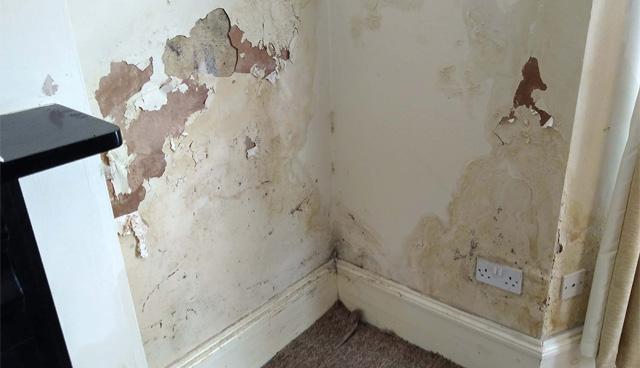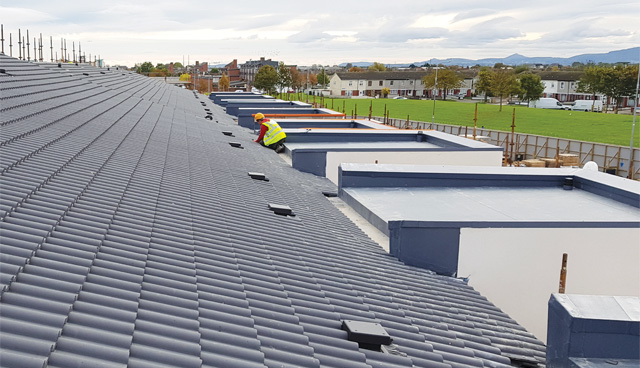
Local authority housing maintenance under question
22nd July 2020
What affordable housing really means
22nd July 2020European Commission identifies housing solutions in tackling economic imbalance

The European Commission has recommended that Ireland increase its provision of social and affordable housing by the end of 2021, recognising that shortages in social housing supply “remain a significant challenge” to fostering inclusion.
The Commission made a number of recommendations for Ireland spanning improved accessibility to healthcare, addressing the digital divide, tax policy and housing in an in-depth assessment of the country’s performance against recommendations adopted by the Council in July 2019.
Under the 2020 European Semester, the Commission carried out a comprehensive analysis of Ireland’s economic policy and published it in the 2020 country report.
Published in February, the country report for Ireland outlined the finding that Ireland is experiencing macroeconomic imbalances, in particular in relation to significant stocks of public debt, private debt and net external liabilities.
The report assesses the submission of Ireland’s National Reform Programme and Stability Programme in April 2020 and also takes account of the potential knock-on effects of the Covid-19 pandemic.
Recognising the economic measures introduced to mitigate the impact of the pandemic, including but not limited to the temporary ban on rent increases and evictions, it states that despite such measures “the risk of significant output loss, bankruptcies and insolvencies, and an increase in unemployment and people at risk of poverty, remain high”.
Housing
The report recognises measures implemented by the Government to support housing supply, outlining the 40 per cent housing completion rate rise in the two years to September 2019 and indicates that additional measures have helped curb house price inflation. However, it also recognises that demand still far outweighs the levels of completions.
“Housing affordability is a problem for many households and inflation in the rental sector is persistently high,” the Commission states, adding that improved infrastructure, combined with spatial planning, could be a “critical enabler” for improving housing supply.
Another recommendation made by the Commission is for the solving of “administrative deficiencies” in the vacant site levy. Since January 2019 vacant sites in Ireland (those deemed as empty lands suitable for housing but not put forward for development) have been subject to a levy, however, at the start of 2020 fewer than 80 sites had been brought back in to use as a result of the costs.
The Department of Housing, Local Government and Heritage has increased its pressure on local authorities to ensure that they are equipped to identify sites, as well as administer and collect the levy, some three years after provisions for the levy were introduced.
The Commission estimates that addressing these administrative deficiencies might “ultimately help improve housing affordability in the medium-term”.
Shortages in social housing supply remain a significant challenge to foster inclusion and for the most vulnerable, the Commission recognises.
“Recent policy measures have accelerated social housing delivery, but there were still approximately 68,700 households on social housing waiting lists in Ireland in December 2019. Further efforts are needed to cover the needs of remaining households on the current waiting list and of potential new applicants,” the analysis states.
On homelessness, the Commission highlights that of the estimated 10,000 homeless people registered in Ireland, more than one-third (3,500) are children and says that it is concerned about the potential risks of “deepening inequalities, entrenched poverty and social exclusion”.
It also recognises the “substantial regional and urban differences” in relation to homelessness, highlighting that almost 70 per cent of all Ireland’s homeless adults are concentrated in the Greater Dublin Area. Such a figure is striking when considering the Commission’s broader finding that the socio-economic consequences of the pandemic are likely to be unevenly distributed across regions due to different specialisation patterns. “This entails a substantial risk of widening regional disparities within Ireland,” the Commission finds.
The context for dealing with the housing crisis in Ireland is its changing economic circumstance. Ireland has reported expectations of a significant change of GDP from a 0.4 per cent surplus in 2019 to a 7.4 deficit in 2020. The deficit is expected to be 4.1 per cent of GDP in 2021, however, the Commission analysis recognises that the pandemic makes the macroeconomic and fiscal outlook highly uncertain.
Increasing the provision of social and affordable housing is among the Commission’s recommendations to address Ireland’s macroeconomic imbalances, in the context of tackling the pandemic and facilitating economic recovery as a first step.





